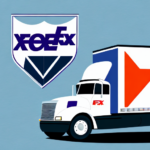Understanding the Pricing Structure of FedEx Shipping Services
When it comes to shipping, cost is a major concern for both businesses and individuals. FedEx, one of the leading shipping carriers globally, offers a comprehensive range of services with a complex pricing structure. This article explores the various factors that determine FedEx shipping costs, compares FedEx pricing with other carriers, and provides strategies to optimize your shipping expenses.
How FedEx Calculates Shipping Costs
FedEx determines shipping costs based on several key factors, including:
- Package Weight and Dimensions: Heavier and larger packages generally incur higher shipping fees.
- Shipping Distance: The distance between the origin and destination influences the overall cost.
- Service Type: Faster delivery options like FedEx Express are priced higher than standard services like FedEx Ground.
- Additional Services: Features such as insurance, signature confirmation, and special handling can add to the cost.
FedEx also considers external factors like fuel prices and seasonal demand, which can affect pricing. Understanding these elements can help customers make informed shipping decisions and manage costs effectively.
Factors Impacting FedEx Shipping Rates
Several variables can influence the cost of shipping with FedEx:
- Package Size and Weight: Larger and heavier packages require more resources to transport, leading to higher costs.
- Distance: Longer delivery routes typically result in higher shipping fees.
- Service Speed: Expedited services cost more but offer quicker delivery times.
- Seasonal Demand: Peak periods, such as the holiday season, may see increased rates due to higher demand.
- Special Requirements: Services like hazardous material handling or temperature-controlled shipping incur additional fees.
Businesses that ship regularly can benefit from volume discounts and promotional offers, which can lower overall shipping expenses. Utilizing FedEx packaging designed to meet specific size and weight criteria can also prevent additional charges.
FedEx Services and Their Pricing Structures
FedEx offers an array of shipping services tailored to different needs:
- FedEx Ground: A cost-effective option for non-urgent shipments with delivery typically within 1-5 business days.
- FedEx Express: Offers faster delivery options, including overnight and time-specific services, ideal for time-sensitive packages.
- FedEx Freight: Designed for large and heavy shipments, providing reliable freight services.
- FedEx SameDay: Provides urgent delivery within hours, suitable for critical shipments.
- FedEx Custom Critical: Offers customized shipping solutions for specialized requirements.
Each service has its unique pricing model based on the factors discussed earlier. Choosing the appropriate service can balance cost and delivery speed according to your needs.
Comparing FedEx Pricing to Other Shipping Carriers
When selecting a shipping carrier, it's essential to compare FedEx's pricing with other providers like UPS, USPS, and DHL. Factors to consider include:
- Delivery Speed: FedEx often provides faster delivery options, but other carriers may offer competitive prices for similar services.
- Cost: Comparing rates for common shipment sizes and destinations can highlight the most economical choice.
- Service Reliability: Evaluating carrier reliability and customer satisfaction can influence your decision.
According to industry reports, FedEx remains a top choice for businesses prioritizing speed and reliability, while USPS may be more cost-effective for small, non-urgent packages. It's crucial to assess your specific shipping needs to determine the best carrier for your requirements.
Strategies to Reduce Your FedEx Shipping Costs
Implementing effective strategies can significantly lower your FedEx shipping expenses:
- Negotiate Rates: If you ship regularly, negotiate volume discounts or special rates with FedEx.
- Optimize Packaging: Use FedEx's packaging solutions to meet size and weight standards, avoiding additional fees.
- Consolidate Shipments: Combining multiple packages into a single shipment can reduce costs.
- Leverage Volume Discounts: Enroll in FedEx's business programs to access discounted rates based on shipping volume.
- Use Online Tools: Utilize FedEx's online shipping calculator and label creation tools to manage and estimate costs efficiently.
Regularly reviewing your shipping practices and making adjustments based on data analysis can further optimize your expenses.
Understanding FedEx's Retail and Commercial Pricing
FedEx offers different pricing structures for retail customers and commercial clients:
- Retail Pricing: Designed for individuals and small businesses with infrequent shipments, typically at a higher rate.
- Commercial Pricing: Intended for larger businesses that ship regularly and in higher volumes, often accompanied by additional benefits like dedicated account management and customized solutions.
Commercial pricing not only offers cost savings but also enhances service levels, making it advantageous for businesses with consistent shipping needs.
Managing and Optimizing Your Shipping Expenses with FedEx
Tracking and Managing Shipping Costs
Utilize FedEx's online tools and third-party software solutions to monitor shipping expenses. Tools like FedEx Ship Manager provide real-time tracking and detailed billing information, enabling you to analyze and control your shipping budget effectively.
Analyzing Shipping Data
Regular data analysis can uncover trends and areas for improvement. By evaluating shipment frequencies, destinations, and service types, you can identify opportunities to streamline operations and reduce costs.
Impact of Peak Seasons
During peak shipping seasons, such as the holiday period, FedEx may increase rates due to higher demand. Planning ahead and adjusting shipping schedules can help mitigate cost increases and ensure timely deliveries.
The Future of FedEx Pricing: Trends and Predictions
FedEx pricing is expected to evolve with technological advancements and changing market dynamics:
- Automation and Technology: Increased use of automation in logistics and data analysis will enhance efficiency and potentially lower costs.
- Growth in E-commerce: The expansion of e-commerce will drive demand for FedEx's services, influencing pricing structures.
- Personalized Shipping Solutions: Greater demand for customized and flexible shipping options may lead to more diverse pricing models.
Staying informed about these trends can help businesses anticipate changes and adapt their shipping strategies accordingly.
Frequently Asked Questions About FedEx Pricing Structures
Are there any discounts available for FedEx shipping?
Yes, FedEx offers a variety of discounts, including volume discounts, loyalty programs, and special promotions. Businesses that ship frequently or in large volumes are eligible for reduced rates. Additionally, promotional periods may offer temporary discounts on specific services.
What are some of the most common surcharges and fees on a FedEx bill?
Common surcharges and fees include:
- Fuel Surcharge: Adjusts for fluctuations in fuel prices.
- Residential Delivery Surcharge: Applies to shipments delivered to residential addresses.
- Address Correction Fee: Charged for correcting incomplete or incorrect shipping addresses.
- Handling Fees: For special services like hazardous material handling.
Carefully reviewing your FedEx bills can help identify and minimize unnecessary fees.
How can I track my FedEx shipments?
FedEx provides multiple tracking options, including:
- Online Tracking: Use the FedEx Tracking tool on their website to monitor the status of your shipments in real-time.
- Mobile Apps: FedEx offers mobile applications for tracking and managing shipments on the go.
- Notifications and Alerts: Sign up for email or SMS notifications to receive updates about your package's progress.
Third-party logistics providers may also offer enhanced tracking features.
How do I know if I am eligible for commercial pricing?
Commercial pricing is typically available to businesses that ship regularly and in higher volumes. To determine eligibility, businesses can contact FedEx directly or consult with a FedEx sales representative. Additionally, partnering with a logistics provider can help assess and secure appropriate commercial rates.






















